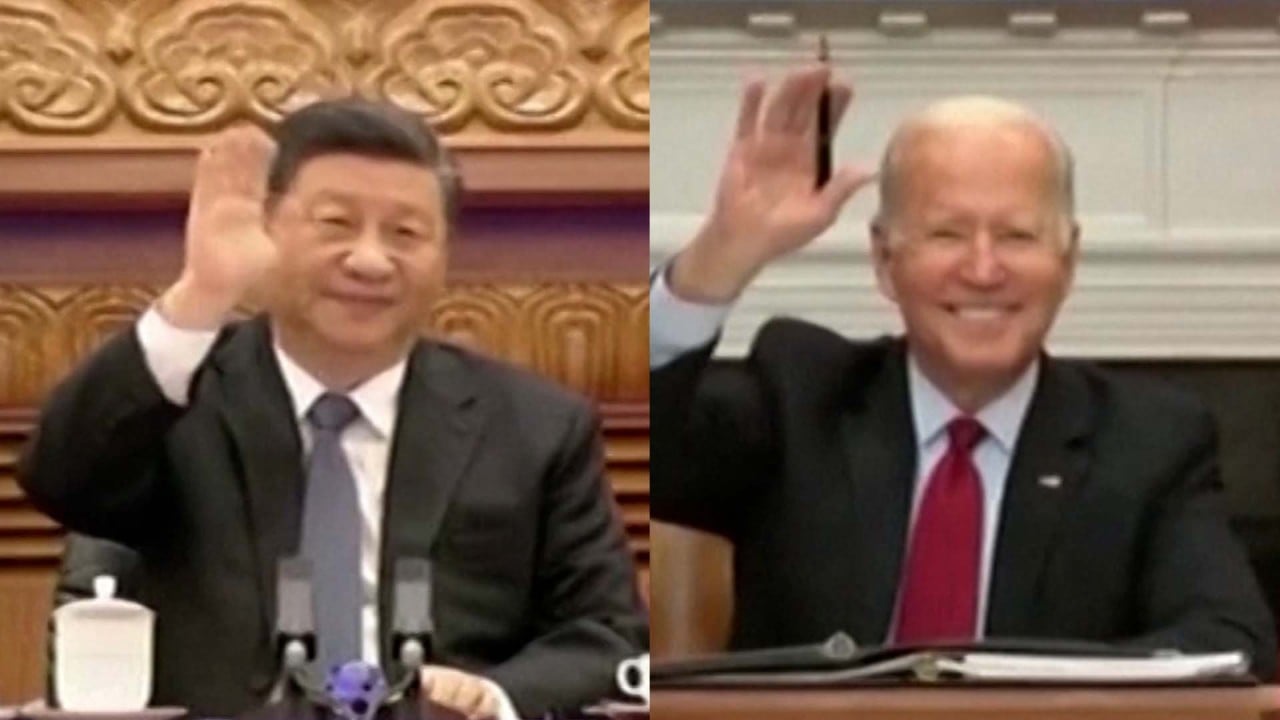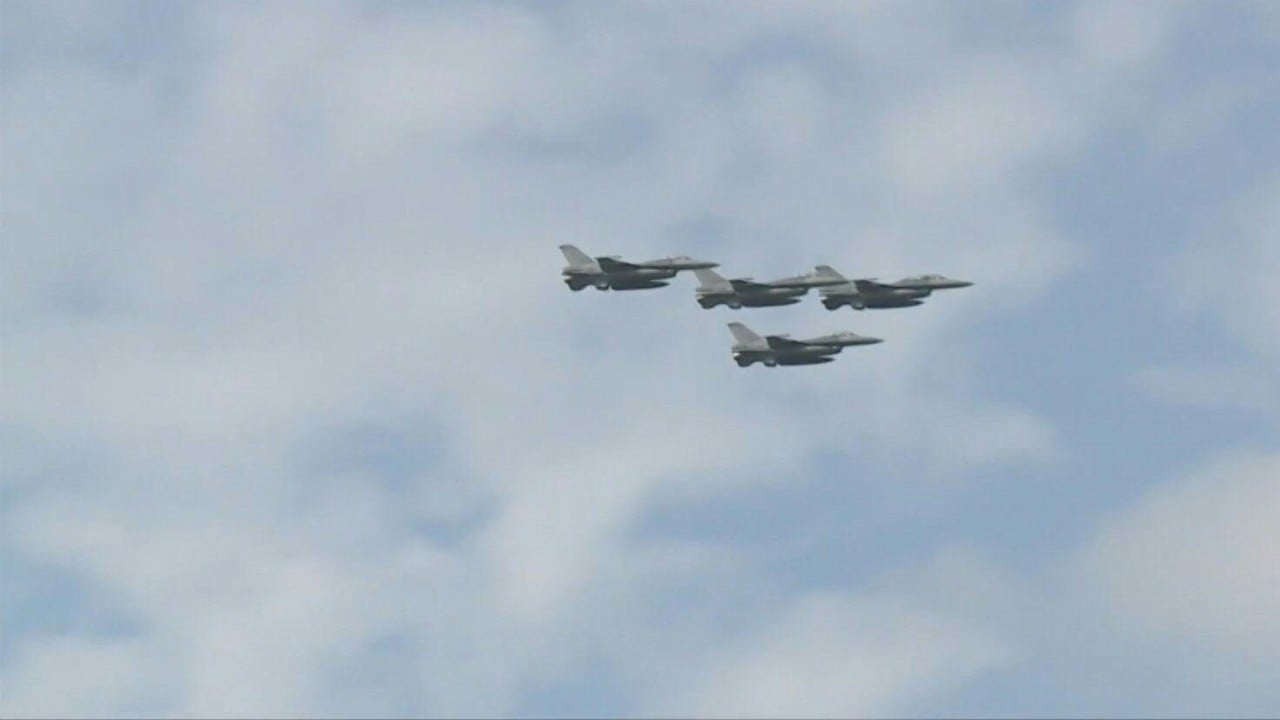
Taiwan’s invitation confirmed for democracy summit hosted by Joe Biden
- Island is one of 110 invitees set to attend first of two Summits for Democracy in December
- Biden’s willingness to include Taiwan shows the limitations of his recent meeting with Chinese President Xi Jinping, expert says
The Chinese government has long frowned upon the summits even before confirmation of the inclusion of self-ruled Taiwan, which it considers a breakaway province.
Instead of sending its leader Tsai Ing-wen, Taipei said on Wednesday that Digital Minister Audrey Tang and de facto ambassador to the US Hsiao Bi-khim would represent Tsai at the summit.
Chinese foreign ministry spokesman Zhao Lijian called on Washington to “stop providing any podium for pro-Taiwan independence forces”.
“Joining the pro-Taiwan independence forces to play with fire could only lead to burning oneself,” he said during a regular press conference in Beijing on Wednesday.
During that discussion, Xi said the Taiwanese authorities had repeatedly sought to use the United States to seek independence, while some in the US intended to use Taiwan to contain China.
The White House has said that the summit, which is to take place virtually on December 9 and 10, is aimed at defending against authoritarianism, fighting corruption and promoting respect for human rights.
Invitees from the Asia-Pacific region include Japan, South Korea, Australia, Pakistan, India and the Philippines.
Most European countries are also invited, including Serbia, but not Bosnia and Herzegovina or Hungary.
The official invitation to Taiwan is in line with Biden’s policy and underlines the limitations of the Xi-Biden summit, said Shi Yinhong, an international relations professor at Renmin University in Beijing.
‘Doomed to failure’: why Taiwan’s separatists aren’t worrying Beijing
“The US has been vaguely talking about inviting Taiwan, and doing so is consistent with Biden’s Taiwan policy, which is to deepen and broaden comprehensive support for Taiwan in terms of security, diplomacy and ideology,” Shi said. “It also shows how insignificant the outcome of the virtual Xi-Biden summit was – Taiwan was the prime focus, but with or without the summit, the confrontation over it is getting more intense.”
Li Da-jung, a professor of international relations and strategic studies at Tamkang University in Taipei, said it appeared Taiwan had chosen its representatives after coordination with the US, to avoid further provoking Beijing.
“Tang is a minister and Hsiao is Taiwan’s representative in the US. This arrangement largely reduces the political sensitivity that would have been caused by President Tsai Ing-wen attending the meeting, even if it is to be held in a virtual format rather than face to face,” Li said.
“Besides, there will be 110 countries taking part … and they will not all necessarily be represented by their leaders. So far, we don’t yet know how the summit will be held – it could be Biden making an opening address and the rest of the meeting might be held by the State Department. So, these might all be reasons President Tsai has chosen not to attend.”
Mainland China has increased its pressure on Taiwan in recent months. Last month it sent more than 200 fighter jets into the island’s air defence identification zone.
Zhu Fenglian, a spokeswoman for Beijing’s Taiwan Affairs Office, said on Wednesday that the blacklist included others besides the trio.
The announcement of the punishment said it was for taxation and environmental protection breaches, but Zhu on Monday said companies that supported Taiwanese independence “cannot make profit on the mainland”.
Additional reporting by Amber Wang and Catherine Wong




